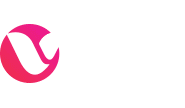A healthy workplace culture is essential for not only the success, but the sustainability of any modern business. Both the employer and employees can influence a workplace’s perceived culture, that’s why VST do all they can to build an environment for their employees to thrive in.
Given the subject’s importance to VST, we recently held a Q&A style discussion with two senior members of the team to discuss all things workplace culture. Below are some of the takeaway points and key quotes outlined by Louise Howson (Managing Director) and Andrew Smart (Founder of VST and now Solutions Director) throughout the discussion.
What attributes to a healthy working environment?
“Staff happiness and satisfaction, a healthy work-life balance, and open communication at all levels can help build a healthy working environment.
With indicators of us (VST) achieving these being high staff retention levels, and the volume of internal referrals when recruiting for open positions.”.
Andrew Smart, VST’s Solutions Director and Founder, then went on to discuss how he feels the business has built a healthy working environment and in turn ‘culture’:
“For the first time in years, we actually have a waiting list for new recruits as a result of internal referrals and our reputation of looking after our employees really well. We believe a large contributor to this is the culture we’ve worked so hard to create and therefore, continually assess and work hard to maintain and improve”.
Louise Howson, VST’s Managing Director, then echoed Andrew’s points adding:
“Whilst other companies appear to be struggling to recruit, we’re seeing great success with 11 new recruits in March and April this year alone. We truly believe this is down to the workplace culture we’ve worked on building. People interviewing for roles have actually commented on the ‘buzz’ and smiles around the office and workplace”.
In contrast to the psychological factors that weigh into this ‘healthy working environment’, Louise then goes on to discuss the more physical factors that contribute to this environment.
“Location, the physical environment, staff well-being and health are also very important to building one’s culture. For example, our offices have an on-site gym (with free passes for employees), has an informal cafe (which we use for team meetings and catch ups with staff and clients) , has nature walks (we encourage walking meetings), and we also have ‘town hall’ meetings where the agenda always includes ‘health and wellbeing’ and reminders to get out of the office and fully utilise breaks.
Not to mention our office dog Teddy… with all the team having the opportunity to take him for walks around the park, throughout the day – he’s a well walked dog!”.
What’s VST’s approach to building a solid workplace culture?
Louise Howson said the key to building a solid workplace culture is facilitating a:
“Calm, professional and motivated environment. We wanted to build a supportive culture, where you feel you’re a part of the team – no matter your position.
That’s why at VST we ensure data and expertise drive not only each meeting, but the company’s overall agenda, rather than just ‘who speaks the loudest’.”.
On the topic of data’s role within workplace culture, Andrew Smart went on to say:
“We actually enter the Sunday Times ‘Best Places To Work Awards’ for tangible results on our working environment. Because you are scored on the overall culture and happiness within your business, we are able to use these scores as a benchmark and to highlight anything we need to work on moving forward. In 2022’s awards, we were delighted to see that we scored well above our industry average.
Alongside this we regularly carry out staff happiness and well-being surveys, though we’ve found that anonymous surveys like the ‘Times Best Places To Work’ often tell more truth.”.
Louise Howson discussed how these surveys and feedback resulted in ‘employee reps’ being elected with frequent 1-2-1’s and focus groups to help feedback any issues staff are facing. Encouraging open communication from all staff members, given change starts at the ground up.
“We have also recently introduced, into our employee benefits package, a health and wellbeing app. It comes with Life and Dental Insurance and ERP as with many policies but this one also encourages health and wellbeing activities such as yoga, guided meditation, cardio classes and gamification duels measuring our steps against our colleagues – which encourages exactly the right behaviours and a some good fun too.”
Andrew Smart then summarised the importance VST place on their own workplace culture by saying:
“Building a healthy workplace culture really is in our best interest as culture, happiness and productivity all sit so closely together. We see the VST team as a family, so this ‘culture’ really is huge for us”.
Work-life balance and Hybrid Working
When discussing how work-life balance and flexible working sit hand in hand, Louise Howson mentioned how VST enable staff and working parents to find balance when needed.
“After years of testing flexible working arrangements, we’ve found hybrid working to be the best model for both happiness and performance.”.
Andrew Smart then expanded on this by saying:
“Work life balance has been a part of VST’s DNA from the start, 17 years ago. We were one of the first companies to offer true flexible hours and career progression for part-time employees. So this balance is something that’s deeply ingrained in our core values.
Companies often now offer flexibility out of necessity, whereas with us it’s always been important that family comes first. All in exchange for loyalty, productivity and results. Which often follow when you put trust in your employees.
This approach is paying dividends as we have the most employees to date. With these employees also achieving tangible career progression alongside this flexibility, with 3 internal promotions in March alone. Giving staff more responsibility, alongside keeping the flexibility in terms of hours worked.
Louise is actually an example of this as well, given she started at VST working 12 hours a week, to 11 years later being made our Managing Director.”.
Louise then closed the work-life balance and flexible working topic by saying:
“What other companies have been forced to offer in terms of flexible models, we’ve been doing successfully for years.”.
Will 2023 see any further changes to workplace culture expectations?
VST predict that workplace culture expectations and discussions within businesses across 2023 will revolve heavily around the flexibility given to new and existing employees, alongside the debate around hybrid working arrangements. Andrew Smart brought up the complex issue of some companies now demanding staff to come back to the office, after being given more flexibility during the pandemic. Stating that a degree of flexibility is needed given it is now expected by employees and job-seekers.
“A lot of employees do want to come back, but a degree of flexibility is paramount for each organisation, no matter what the size. If you don’t offer some form of hybrid or remote working then you aren’t attributing what’s needed (when the line of work allows you to work from home effectively that is).”.
Louise then touched on the fact that more people not only work remotely, but also abroad in some cases:
“More and more people are working abroad as well, so the flexibility given around working from outside of the office, and even country, could potentially hinder organisations ‘recalling’ employees”.
Andrew Smart also discusses the advances in tech and co-working spaces, and how these allow ‘overseas working’ to become more accessible. Another reason why employees will expect more flexibility in working arrangements:
“I think a lot of that (more people working remotely overseas) has to do with the acceleration of tech and co-working spaces. Co-working hubs are coming back faster and better than before. With better overall quality and connectivity, the infrastructure and software are both improving massively.
Alongside this, software and tools for remote working are fast advancing. For example we use Miro, an interactive whiteboard for collaboration, making hybrid working truly collaborative no matter the staff member or clients location.
I think 2023 will also see artificial intelligence (AI) more openly integrated into workplace culture and hybrid working arrangements to help add ‘controlled flexibility’. For example, we use AI technology to monitor calls and productivity and for remote coaching and development. Again adding quality assurance and scalability to the hybrid workforce to ensure maximum success”.
Louise Howson then spoke on the importance and necessity of businesses making flexible workers a fully integrated part of the workplace.
“It’s not just about allowing staff to work from home. It’s about making them feel integrated when not physically in the office.
You’ve got to ensure the hybrid team feel as much as a part of the team as possible. VST do this by giving staff enough office time, or if they’re fully remote, ensure they’re included in everything that’s going on in the team. From pizza for the whole office (home deliveries) to virtual tea breaks. Our team leaders work hard to ensure this.
This approach also helps with loneliness for employees, which is a taboo subject but we aim to add a social aspect to remote working, so all staff feel involved. Some people thrive with colleagues around, working from home shouldn’t feel isolating in a growing business.”.
Louise then went on to explain how remote workers can even have positive impacts on the physical office culture:
“Recently at VST, numerous people nominated a fully remote worker in Glasgow for making new starters (all physical workers in the office based Towcester) feel so welcome.”.
Andrew Smart then concluded the flexible working process discussion by saying:
“You must get the workplace culture right first, before hybrid working is introduced. So many elements weigh into the success of this, but aren’t obvious. All efficient workplaces are built on this initial backbone of workplace culture.”.
Are you interested in joining a future Q&A?
At VST, we’re open to collaboration from industry experts across all Marketing and Sales channels. If you wish to participate in a future Q&A, be sure to contact us on LinkedIn or through our Contact Us page.
Don’t forget to connect with those involved in the Q&A on LinkedIn and share your thoughts on the discussion:







